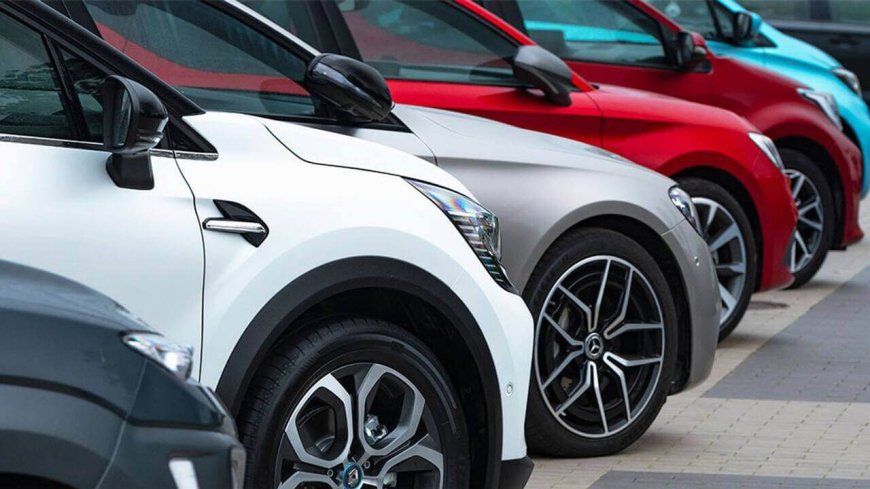How Karachi’s Economy Influences the Prices of Used Cars for Sale?
Discover how Karachi's economic factors like inflation, consumer purchasing power, fuel prices, and import policies impact the prices of used cars for sale. Learn how these influences shape the city's dynamic used car market.

Karachi, Pakistan’s largest city and financial hub, plays a pivotal role in shaping the nation’s economy. The city's economic landscape, driven by various factors, directly impacts the prices of used cars for sale. Understanding how Karachi's economy influences the used car market can provide valuable insights for both buyers and sellers. Here’s a closer look at the relationship between Karachi’s economy and the prices of used cars for sale in Karachi.
1. Economic Growth and Consumer Purchasing Power
Karachi is home to many industries, from manufacturing to finance, which means that economic fluctuations in the city can affect consumer purchasing power. When the economy is thriving, people tend to have more disposable income, leading to higher demand for cars, including used ones. Conversely, during periods of economic downturn, purchasing power decreases, causing a reduction in demand for vehicles. This change in demand often translates to price shifts in the used car market.
2. Inflation and Rising Costs
Inflation is another economic factor that influences the prices of used cars for sale in Karachi. When inflation is high, the cost of goods and services, including cars, increases. Rising fuel prices, maintenance costs, and the overall cost of living in Karachi can drive up the demand for fuel-efficient and affordable used cars, leading to a spike in their prices. Additionally, the inflationary pressure on new car prices often pushes consumers toward the used car market, further affecting prices.
3. Import Policies and Exchange Rates
Karachi’s economy is closely tied to international trade, and import policies significantly influence the local car market. A weakening Pakistani rupee against the dollar can lead to higher prices for imported cars, making new cars more expensive and increasing demand for used cars. Stricter import regulations, higher duties, or changes in exchange rates can also affect the availability of new vehicles, pushing more buyers toward the used car market and driving up prices.
4. Supply Chain Disruptions
Karachi, as a major port city, is vital for the country’s supply chain. Any disruptions in the supply chain, whether due to port blockages, strikes, or political instability, can affect the availability of new cars. When the supply of new cars is limited, the demand for used cars increases, often leading to a rise in prices. Economic instability or logistical challenges can create a scarcity of new vehicles, which directly impacts the pricing trends in the used car market.
5. Fuel Prices and Demand for Fuel-Efficient Cars
Karachi's economy is sensitive to global fuel price fluctuations. When fuel prices rise, many consumers look for fuel-efficient vehicles to cut costs. This shift in preference toward fuel-efficient used cars, such as compact sedans or hybrid models, increases their demand and consequently raises their prices. The opposite happens when fuel prices decrease—larger, less fuel-efficient cars may see a resurgence in demand, affecting their resale value.
6. Interest Rates and Car Financing
Interest rates set by the State Bank of Pakistan also have a direct influence on car financing options. Higher interest rates make car loans more expensive, deterring consumers from purchasing new vehicles. As a result, more buyers turn to the used car market, where prices may be more affordable. Conversely, lower interest rates stimulate car purchases, potentially stabilizing or even lowering prices in the used car market due to increased availability of new vehicles.
7. Political Stability and Investor Confidence
The political climate in Karachi affects the overall economic stability of the city, which in turn influences the prices of used cars for sale. When the political environment is stable, investor confidence is higher, and consumers are more likely to make significant purchases, including cars. However, political instability or uncertainty can lead to economic anxiety, causing a decrease in demand for cars and a potential dip in used car prices.
8. Technological Advancements and Depreciation
Technological advancements in new car models can also influence the pricing of older used cars. As newer models with advanced features become available, older cars depreciate faster, leading to a drop in their resale value. However, in Karachi’s economy, where not everyone can afford the latest models, demand for well-maintained older vehicles can remain strong, keeping their prices relatively stable.
Conclusion
Karachi’s economy, with its complex web of factors such as inflation, consumer purchasing power, political stability, and international trade, plays a crucial role in determining the prices of used cars for sale in the city. For buyers and sellers in Karachi’s used car market, staying informed about economic trends is essential for making smart decisions. Whether it’s the impact of fuel prices or changes in car financing options, understanding these economic factors can help navigate the ever-evolving market for used cars in Karachi.

 Anokshi kumari
Anokshi kumari 










